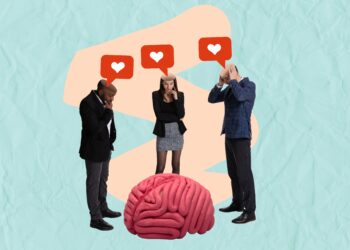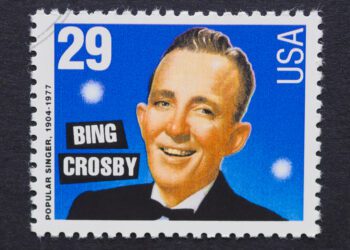In a new book, Angus Fletcher examines literary inventions through the ages to show how writers have created technical breakthroughs.
In this edition of Author Talks, McKinsey Global Publishing’s Raju Narisetti chats with Angus Fletcher about his new book, Wonderworks: The 25 Most Powerful Inventions in the History of Literature (Simon & Schuster, March 2021). Fletcher, a practitioner of story science, reviews the blueprints for the most powerful developments in the history of literature and uses science to show how literature can alleviate a range of negative emotions while sparking creativity, courage, love, empathy, hope, joy, and positive change. An edited version of the conversation follows.
What made you want to write this book?
There’s a crisis in the way that literature is taught. Students aren’t engaged, and they don’t want to take literature classes at higher levels. They choose, instead, to go into STEM [science, technology, engineering, and math] and other fields. Literature has always been one of the prime sources of creativity and innovation. The more that literature falls out of the curriculum, the less that students embrace it, the less that we have those drivers.
I wrote the book to explain that there’s actually a different way—a more scientific way—to study literature. If we can start to introduce that different way of teaching literature in schools, I think we can start to bring back some of the powerful change that literature has produced in the past and can produce in our future. Wonderworks gives you the blueprints for using your favorite books and films and comic books and memoirs to get more courage, more curiosity, more healing, more growth, and more happiness from the day.
Why try and capture the impact of literature in an almost clinical way?
One of the things that neuroscience teaches us is that our brains are all different. All of us are going to have different responses to literature. In schools, literature is currently taught on a model which comes to us from the early 20th century and which establishes logic as the way that we read literature.
Everyone has had the experience of reading a literary work and mining it for themes or representations and being told that your own individual responses, the characters you like, the emotions you experience, the imaginations it sparks in your head, aren’t what we’re going to talk about in the class. What I want to talk about is how neuroscience allows a more diverse, more inclusive, and more student-centered approach to unlocking literature but in an environment where we can also talk about knowledge and wisdom and other things that aren’t entirely subjective.
What surprised you most in researching this book?
I think the thing that surprised me is how much science and medicine there is backing the power of literature. We’ve all had the experience of reading a poem and feeling better or reading a book and feeling less lonely. Literature can actually be therapeutic with trauma—multiple types of trauma. It can spark creativity, reduce stress and anxiety, can promote personal growth, and there is neuroscience to back all these things. That was the thing that was most surprising to me.
On The Godfather
A lot of people are surprised by the fact that I have Mario Puzo’s The Godfather in the book. They’re even more surprised by the way that I read it because I don’t read it thematically. If we were to read it thematically, the way we’re taught to read in school, we would say, “Oh, this is about being a gangster,” or “This is about violence,” and we should interpret it as a kind of sermon or message on being a gangster or on violence.
What I point out is that reading The Godfather actually has the neurological effect of making you less lonely and reducing the adverse effects of loneliness. Where does this come from? It comes from the fact that The Godfather is part of a tradition of literature that goes back to some of our earliest operas that used a technique from music to create a feeling of bonding to the writing. That bonding makes us feel less lonely. You can feel that operatic effect just in reading The Godfather. It feels like an opera. The overall take is that when you read literature, it’s not about the themes. It’s not about the arguments or what the literature seems to be saying, like we’ve all been taught in school. It’s about the psychological effects, and those come from the actions that the work is making as opposed to the things that it’s saying on the surface.
Is your approach taking some of the fun away?
The first thing I would say is, enjoy the literature. Have fun. I’m not trying to tell you that you have to experience literature this way. I’m not here to tell anyone that they have to do anything. I’m simply saying that there’s an opportunity: if you want to get more out of literature, it can give it to you. The way you might think about it is the way you might think about a friendship. We all have friends that we just want to have fun with, but some of those friendships deepen into more meaningful friendships that can change our lives in profound ways. This book is just about how to go beyond the fun into that emotional and psychological change, if you want to go there. If you just want to have fun, that’s OK, too.
About the authors: Angus Fletcher is a professor of story science at Ohio State University’s Project Narrative. Raju Narisetti, based in McKinsey’s New York office, is the publisher of McKinsey Global Publishing.
Read the full interview here.












